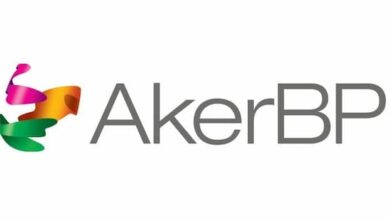Panel: Ensuring competency isn’t a paper exercise – it’s the future
Competency isn’t just an industry buzz word; it’s the reality of our future. More and more companies are implementing competency programs – not just because they want to improve their performance or efficiency, but because those who can’t ensure the competency of their workers will get left behind in today’s highly competitive market.
“From an operator’s point of view, competency is a very, very big thing. … We have to make sure that our competencies match (contractors’) needs and their competencies match our needs,” said EnCana Oil & Gas’ James Thatcher, one of four participants in a panel discussion at the 2010 IADC Health, Safety, Environment & Training Conference on 27 January in Houston.
“Those companies that hire contractors as service providers are becoming more and more involved in evaluating every element of performance and determining whether they hire them or not. Every single element,” said Dr Thatcher, EnCana team lead – EH&S.
National Oilwell Varco recognized this trend several years ago and decided to implement a competency program that would help their customers assess the skill levels of NOV employees. “Competency is about being successful. If you have competent people in your organization, then you become best in class, and your customers respond to that. They want you working for them,” commented Grant Almond, NOV vice president education services.
Mr Almond suggested that a successful competency program must be relevant to the workplace at all levels and be able to produce tangible, measurable outcomes. “And then it has to be assessed by others. In other words, we’re putting our competency system out there for our customers to see so they can measure us and say, ‘Yes, you’re meeting the mark’ or ‘No, you’re not.’ ”
NOV’s program was rolled out in 2008. By the end of 2009, more than 1,000 employees were engaged in the program. “We have 11,000 employees in our division, so we’re certainly not there yet. But it’s a start,” Mr Almond said.
NOV’s competency project may be a success story, but for many in the industry, “competency” is still not a totally understood concept. “A lot of us don’t actually get it. We don’t understand what it means, how it functions,” said Gary Castell, global training manager for Nabors Drilling International.
In fact, if you sit down with employees and tell them they’re being enrolled in a competency program, more likely than not, there will be fear and push-back. “They believe it’s a paper exercise,” Mr Castell said.
“What you have to do is be able to get our message across as to why this is good, why this is positive,” Mr Castell explained, urging companies to focus on getting employee buy-in. Otherwise, he said, programs will simply crash and burn.

There are many approaches to ensuring competency, and at Bandera Drilling, HSE director Anthony Zacniewski believes that “to begin building a competent work force, you have to begin at the hiring process.” With today’s sophisticated and highly automated rigs, he said, “you can’t just pick someone off the street, bring them in there and teach them how to run it. You have to test them to see if they’re capable of learning.”
The company now uses the Thurstone Test of Mental Alertness to measure applicants’ capacity to learn new knowledge and skills and apply them to problem solving. “We want the best people we can find to fill the positions on these rigs,” he explained.
Rather than hiring roughnecks who come to work with attitude problems and don’t want to “learn new tricks,” new employees hired after passing this test are open to learning new ways to do things, accept guidance and show up on time. “Our turnover rate has dropped dramatically,” Mr Zacniewski said.





this is not rig 9 its 1 or 7 or 10